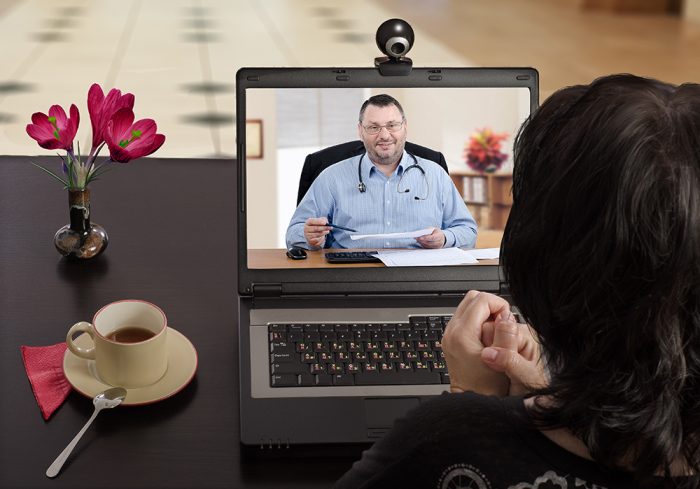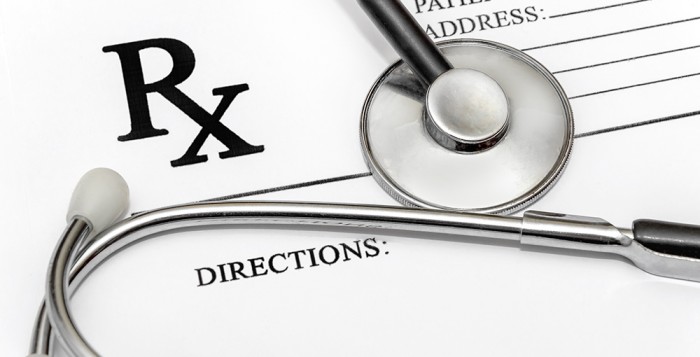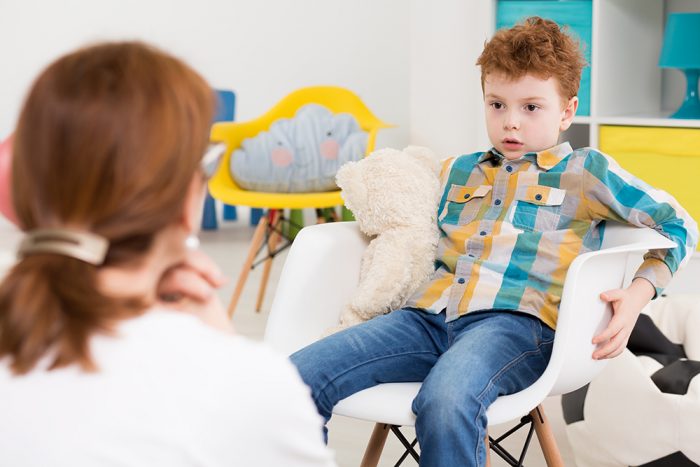Regulations
How the FBI’s Rules Are Making It Harder for PA Doctors to Have Virtual Visits With Patients in Other States
SAMHSA Proposes Update to Federal Rules to Expand Access to OUD Treatment Through Opioid Treatment Programs
The Substance Abuse and Mental Health Services Administration (SAMHSA) is proposing to expand access to treatment for opioid use disorder (OUD) by making permanent medication flexibilities put in place during the COVID pandemic, including an increase in number of take-home doses of methadone and the use of telehealth in initiating buprenorphine at opioid treatment programs (OTPs).
In its Notice of Proposed Rulemaking to update 42 CFR Part 8, SAMHSA is proposing to improve access to OUD treatment through OTPs. The proposed changes reflect the widespread desire by many stakeholders for SAMHSA to provide greater autonomy to OTP practitioners, positively support recovery, and continue flexibilities that were extended at the start of the nation’s COVID-19 public health emergency. For example, in March and April 2020, SAMHSA published flexibilities for the provision of take-home doses of methadone and for the use of telehealth in initiating buprenorphine in OTPs. Patients deemed stable by physicians have been able to take home up to 28 days’ worth of methadone doses; other patients — again, so determined by their physicians — received up to a 14-day supply. A recent study showed that patients who received increased take-home doses after federal flexibilities were enacted during COVID-19 saw positive impacts on their recovery, including being more likely to remain in treatment and less likely to use illicit opioids.
ODP Guidance for 24-Hour Annual Training Requirements in Training Year 2023
ODP Announcement 22-111 reminds providers that any regulation that requires completion of 24 hours of training related to job skills and knowledge each year, as well as any regulations that require the provision of training that encompasses the six areas required by regulation, are in full effect. Providers must comply with these requirements.
The Office of Developmental Programs (ODP) recognizes that providers may still be struggling to meet the 24-hour training requirements due to the prevalence of infectious or communicable diseases and continued workforce insufficiency; as such, the following guidance will be applied for training years that end in calendar year 2023:
- Any training provided that is specific to the mitigation of risk related to infectious and communicable disease may be counted towards the 24-hour training requirements required by regulation. Such training includes, but is not necessarily limited to:
- Social distancing;
- Personal protective equipment use (donning, doffing, fit testing);
- Contact tracing and notifications;
- Mask, face covering, or face shield use;
- Cleaning and disinfection practices;
- Screening for signs and symptoms of infectious disease;
- Reporting procedures related to signs and symptoms of infectious disease;
- Notification processes due to infectious reportable infectious disease;
- Characteristics and methods of transmission of infectious disease;
- COVID-19 transmission risk by pre-symptomatic and asymptomatic individuals;
- Safe and healthy work practices and infection control measures;
- Supporting individuals to engage in mask wearing, social distancing, etc.;
- Vaccine safety, efficacy, and access;
- Set up and use of technology in providing remote service delivery or supporting individuals to connect with friends and family;
- Remote monitoring;
- Use of the Supports Coordinator Check-In for Well-Being Tool;
- Engaging in meaningful conversations during check-ins;
- SC Individual transition guide;
- Transition discussion and resources video; and
- Reviewing Centers for Disease Control (CDC) and state or local guidelines and trends.
- Any component of a department-approved Medication Administration Course.
Licensed Providers may self-assess regulatory compliance using ODP’s Inspection Scoresheets or Provider Self-Assessment Forms. If a provider identifies areas of noncompliance while completing a self-assessment, provided those noncompliance areas have been corrected, licensing staff will not identify those areas as noncompliant. Violations identified and subsequently corrected through the self-assessment process will not be cited on a Licensing Inspection Summary.
Please contact the appropriate ODP Regional Program Office or the Department’s Regulatory Administration Unit with any questions about this guidance.
DHS ALERT — Civil Rights Regulatory Compliance Update
Immediate Action Required for Regulatory Compliance – Please Read Carefully
The Department of Human Services (DHS) is providing a critical update to those providers who hold a license to operate a facility licensed by DHS. On August 18, 2022, DHS and RCPA released an alert regarding changes in how licensed agencies provide information related to civil rights compliance. Since that time, DHS has received several questions and is providing further clarification.
- When sending the CRC form or the CRC attestation form, please send it as a PDF. Please do NOT send as a secure file, secure email, or link to a secure portal to retrieve the document. We are unable to access those forms, and they will be returned. When emailing the forms for submission:
- Use the following naming convention in the subject line when submitting Renewal HS2125:
- Attestation – Program Office – Name of Facility or Agency – License number or APP number if assigned
- Examples:
- Attestation – OCYF – Apple Agency Home – 123450
- Attestation – ODP – Apple Agency – APP-00123456
- Examples:
- Attestation – Program Office – Name of Facility or Agency – License number or APP number if assigned
- Use the following naming convention in the subject line when submitting a new application HS2126:
- New – Program Office – Type of Service – Name of Facility or Agency
- Examples:
- New – BHSL – PCH – Apple Personal Care Home
- New – ODP – Life Sharing – Apple Agency – APP-00223456
- Examples:
- New – Program Office – Type of Service – Name of Facility or Agency
- Use the following naming convention in the subject line when submitting Renewal HS2125:
- In the Office of Developmental Programs (ODP) and the Office Mental Health and Substance Abuse Services (OMHSAS), there are providers who have one license that cover multiple locations. In this case, you only need to submit one form (either the HS2125 or the HS2126) and list the addresses of each satellite site/location that falls under that license.
- If in the past, you completed the Civil Rights Compliance Questionnaire (CRCQ) annually, as part of the renewal license process, you will need to complete the Civil Rights Attestation (HS2125) when you receive your next notice to complete the renewal application process.
- If you have a current license, your CRC was approved. You will need to complete the Civil Rights Attestation (HS2125) when you receive your next notice to complete the renewal application process.
- For Assisted Living and Personal Care Home providers, when submitting the renewal application for a license, the renewal application, the renewal application fee, and the Attestation (HS2125) must be sent in hard copy in one envelope to Licensing Administration in Harrisburg, as noted on the cover letter of the renewal application packet.
- Please ensure that the “Non-Discrimination in Employment” policy statement and the “Non-Discrimination in Services” policy statement issued by your facility contain updated contact information (as indicated below). If this administrative update is the only change that has occurred since the facility’s last license was issued, it is not necessary to provide updated copies to the Department as part of Form HS 2125.
Commonwealth of Pennsylvania
Department of Human Services
BEO/Office of Civil Rights Compliance
Room 225, Health & Welfare Building
P.O. Box 2675 Harrisburg, PA 17120
Inquiries: (717) 787-1127
Email
Office for Civil Rights
U.S. Department of Health and Human Services Centralized Case Management Operations 200 Independence Avenue, S.W.
Room 509F HHH Bldg
Washington, D.C. 20201
Customer Response Center: (800) 368-1019 TDD: (800) 537-7697
U.S. Equal Employment Opportunity Commission
801 Market Street, Suite 1000
Philadelphia, PA 19107-3126
Inquiries: (800) 669-4000
Complaint Process Overview
Pennsylvania Human Relations Commission
333 Market Street, 8th Floor
Harrisburg, PA 17101
Inquiries: (717) 787-4410
With Fines for Non-Compliance Now a Possibility, DDAP Issues Reminder on Recovery House Regulations
In 2017, Governor Wolf signed Senate Bill 446 into law as Act 59, which gave the Department of Drug and Alcohol Programs (DDAP) the power and duty to license drug and alcohol recovery houses that receive referrals from state agencies or state-funded facilities or receive federal or state funding. That legislation gave DDAP the authority to take enforcement action and issue fines against operators of unlicensed recovery houses that receive public funding. Last December, DDAP announced that it had published regulations for the licensure program for drug and alcohol recovery houses was accepting applications. Those regulations stated that the provision for issuance of fines would not take effect until 180 days after they were published.
Thursday, June 9, marked 180 days after publication of the regulations. View Information Bulletin 01-22 for requirements for recovery house licensure.
DDAP’s goal is to continue working with recovery houses to attain licensure and will not be looking to penalize houses that are actively working through that process. DDAP and the Single County Authorities (SCAs) share a common goal of causing the least amount of disruption to the lives of individuals in recovery and are hopeful that more houses will continue to submit applications and increase the capacity of licensed recovery houses in Pennsylvania.
To that point, SCAs may continue to act on existing contracts with recovery houses regardless of licensure status through June 30, 2022. Beginning July 1, 2022, SCAs may not execute new contracts with unlicensed houses. For existing contracts that run beyond July 1, SCAs can no longer pay unlicensed houses and should be looking to transition residents to licensed houses and other living arrangements unless the house shows a timely, good faith effort to apply for licensure.
More information on the recovery house application process can be found on the DDAP website. DDAP is also offering a free one-day training workshop designed to answer the various questions associated with the application process. Participation in the workshop results in a decrease in the amount of time it takes to approve applications, resulting in the license being issued sooner to those applicants who participate. To register for the workshop, please email or call 717-783-8675.


















